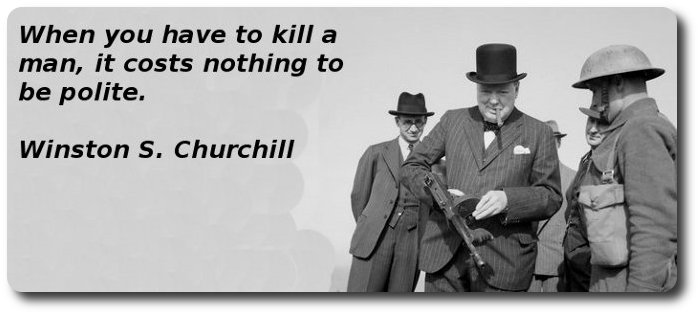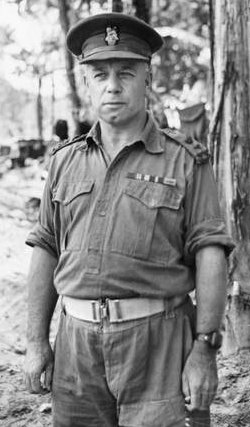Topic: Discipline

Winston Churchill on Saluting
Brig. J. Field, CBE, DSO, ED, 4th Infantry Brigade, in the Australian Army Journal;
republished in Canadian Army Journal, Vol. 2, No. 4, 1948
On the 4th September 1940, Mr. Winston Churchill visited and inspected units of the 2nd A.I.F. then encamped on Salisbury Plain. While passing down the ranks of the writer's battalion, the Prime Minister keenly scrutinized the men, meanwhile asking a number of questions on the state of training, supply of unit equipment and so forth. As is well known, Mr. Churchill was first commissioned in the 4th Hussars and, during the Great War of 1914-18, at one period, he commanded the 6th Royal Scots Fusiliers. It was clear that his own regimental training, his possible association with men of the 1st AIF in France, and speculation on the qualities of the new Anzacs, inspired the final question in this interrogation: "How are they on saluting?" The answer to this was followed by one of those inimitable comments which, like so many of the famous statesman's utterances gets down to the roots of the matter in arresting phraseology. He said: "You know, in my young subaltern days, I was always taught that saluting was the outward and visible sign of an inward and spiritual grace." In May 1944, when. the United Kingdom was crammed with British and American troops in training for D-Day, a questioner in the House of Commons asked the Prime Minister if he would consider an order that would eliminate the obligation to salute when off duty. Mr. Churchill's reply is quoted in full: "No Sir: a salute is an acknowledgement of the King's Commission and a courtesy to Allied Officers, and I do not consider it desirable to attempt to make the distinction suggested. If my honourable friend had an opportunity during the war of visiting Moscow he would find the smartest saluting in the world. The importance attached to these minor acts of ceremony builds up armies which are capable of facing the greatest rigours of war."


